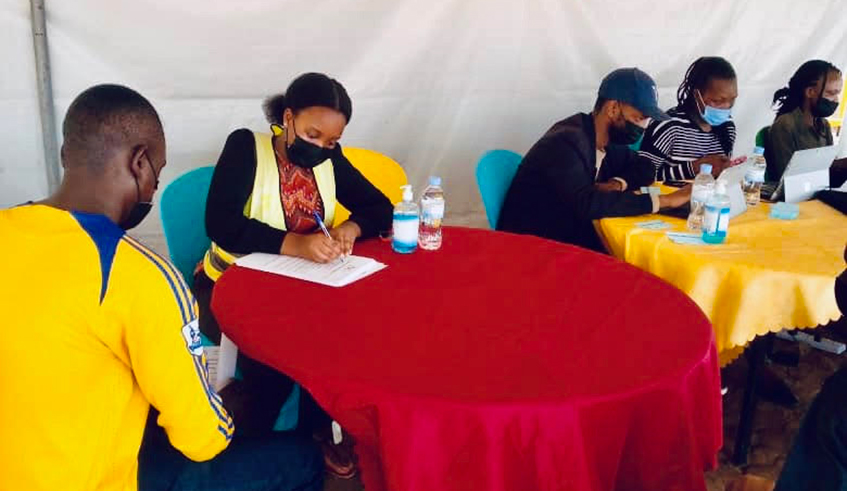

Under the scorching afternoon sun, Rwandan men and women queue around a select few centers around the country. Despite sighs of impatience, many of them have reached the locations in the early morning, and none show intent to leave.
This is not a Fortebet exterior or even an RRA (Rwanda Revenue Authority) office on tax payment deadlines, but rather the scene I witnessed unfolding daily during my time as an Anti COVID-19 Youth Volunteer at the Kimironko Vaccination center.
Only months ago, there was widespread skepticism about vaccines’ safety around the globe. Yet, now Rwanda has reached about 7 million fully vaccinated people, accounting for 53.7% of the population. And all this has been coupled with a full reopening of the economy and enforcement of the existing SOPs. To ensure the survival of businesses, the National Bank of Rwanda instituted an Economy Recovery Fund that ensured that businesses that have been highly affected by the COVID-19 pandemic are able to fully function.
At the dawn of the spread of the Omicron variant, various measures that ensure that the citizens are safe from crowded physical spaces have been maintained. However, no economic activity was halted. People still wake up, rush to their daily activities with the longing for a better pay, a better sale, and most importantly better health. Students’ lives have also been a priority in all ways; from easing their movements to and from school, to securing a better classroom environment where "every student is vaccinated, though the vaccine doses remain limited in developing countries, like Rwanda.
Unfortunately, skepticism about vaccines is a notion that is still lurking around the country and many other nations. I believe that there is more that could be done to bridge gaps surrounding public knowledge; obliging vaccination as a ticket to access various services is not a strategy that should stand alone. The Covid-19 pandemic is a global crisis, one that affects all of us, and it is imperative that everyone be aware of the gravity of the situation.
We are living a harsh reality where the enemy changes the face with every variant birthed. However, the lifespan of the generational spread of variants can be stopped with a thoughtful society system. As evidenced by the lockdowns that were initially instigated, the threat to public health in today’s world is a hindrance to the growth of the economy. With this point emphasized to the citizens, we should all be able to acquire the sense of urgency that today’s world is facing. I believe that it is possible to live in a world where both public health and a growing economy are top priorities. With this, here are a few recommendations to help nurture a new culture, one that best positions the world to address the ongoing pandemic and other current and future health crises alike.
First, I believe that we should create inclusive vaccination programs. Everyone is susceptible to the virus, everyone can die from it. Young, old, and everything in between; and livestock, to humans, everything needs to be considered, everyone needs to be protected. We are in need of more support and investment to fight vaccine inequity that is delaying our success towards a definite end to the pandemic. More to this, vaccines today are categorized in terms of who can and who can’t take it, an understandable fact; however, I think there is a need for vaccines that cater for children too. It takes effort for a global vaccination program to be successful, but it is rewarding because we are keeping everyone safe.
Secondly, for countries where pricing of Covid-19 tests is still a common procedure, the testing fee needs to be reevaluated. Vaccines do not guarantee that a person will not catch the virus again, so routine testing is necessary. To ensure people are protected and the use of testing often is valued, incentives must be provided. This is for the poor as it is for the rich. As Rwanda’s vaccination programs’ success is rooted in the fact that it is free, ensuring access to testing is vital in the global fight against the pandemic.
Careful weighing of an entire nation’s health and economic wellbeing is no simple task. It will require investment, cooperation, and above all a common understanding of the enemy we face. We have and are still investing in viable solutions to end this ongoing battle. However, we have not yet reached maximum cooperation from the public due to a lack of enough information. There is a need for an inclusive information flow to the public. A system that reaches the ears of the blind, the hearts of the deaf and the doors of the poor is what I am talking about.
Lastly, the big economies have, for centuries, invested heavily in weaponry and relatively little in medicine. It took less than two years for the COVID-19 vaccines to be discovered, the quickest time in human history. If the same investments and efforts are done in the health sector there is a high chance to find vaccines and medicines for AIDS, Malaria and Cancer which are killing hundreds of millions annually worldwide. Furthermore, developing countries should invest in medical laboratories as they do for roads, schools, hospitals, etc. to join in on the worldwide struggle against epidemics and pandemics.
Humanity today has been handed a complex definition of living. It is breathing from functioning lungs while also having a chance at a proper meal on the family table. Today, living is a collective choice - it is a common goal we are all striving for. It is no longer about the maximum efforts of the government officials or health instructors, it is an understanding of one another; survival for all. The COVID-19 pandemic has taught us that living is to distance our bodies, with hearts so close to one another because we are all vulnerable to the present global enemy.


